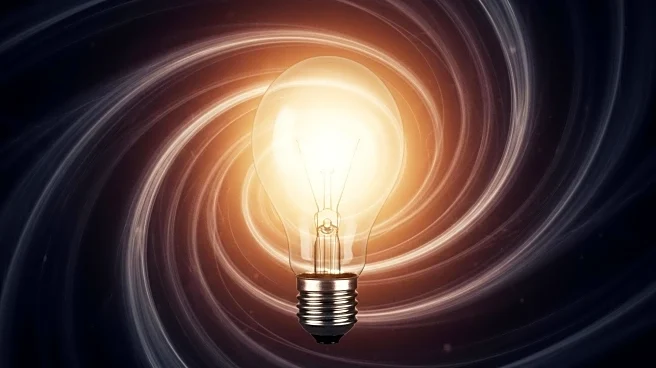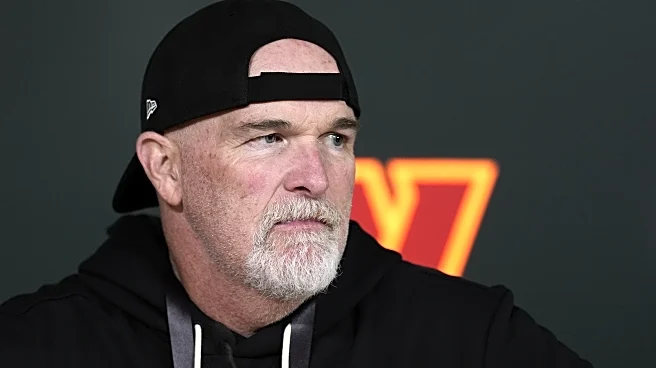What's Happening?
Electricity prices in the United States are experiencing significant increases, affecting consumers across various income levels. According to John Quigley, a senior fellow at the Kleinman Center for Energy Policy, these price hikes are driven by multiple factors, including economic conditions and environmental policies. The impact is particularly severe for lower-income households, which allocate a larger portion of their budget to energy expenses. As utilities seek regulatory approval to raise rates further, nearly 80 million Americans are facing difficult choices between paying for electricity and other essential expenses like healthcare and housing. Despite these challenges, there are ongoing efforts to reduce energy consumption and environmental impact through electrification, such as replacing gas furnaces with heat pumps and gas burners with induction stoves.
Why It's Important?
The rising cost of electricity has broad implications for the U.S. economy and society. It disproportionately affects lower-income households, exacerbating existing financial strains and potentially leading to increased power shutoffs due to nonpayment. This situation underscores the need for policy interventions to address energy affordability and support vulnerable populations. Additionally, the shift towards electrification and renewable energy sources presents opportunities to mitigate environmental impact and reduce long-term energy costs. However, the pace of these changes will depend on policy decisions and investments in sustainable infrastructure.
What's Next?
Future developments in energy policy and infrastructure investments will play a crucial role in shaping the trajectory of electricity prices and consumption patterns. Policymakers may need to consider measures to support low-income households and promote energy efficiency. The transition to electrification and renewable energy sources could accelerate, driven by technological advancements and regulatory incentives. Stakeholders, including government agencies, utility companies, and consumer advocacy groups, are likely to engage in discussions to address these challenges and opportunities.
Beyond the Headlines
The ongoing shift towards electrification and renewable energy sources reflects broader cultural and environmental trends. As American households increasingly adopt energy-efficient technologies, there is potential for long-term reductions in carbon emissions and environmental impact. This transition also highlights ethical considerations related to energy equity and access, as policymakers strive to balance economic growth with sustainability goals.










